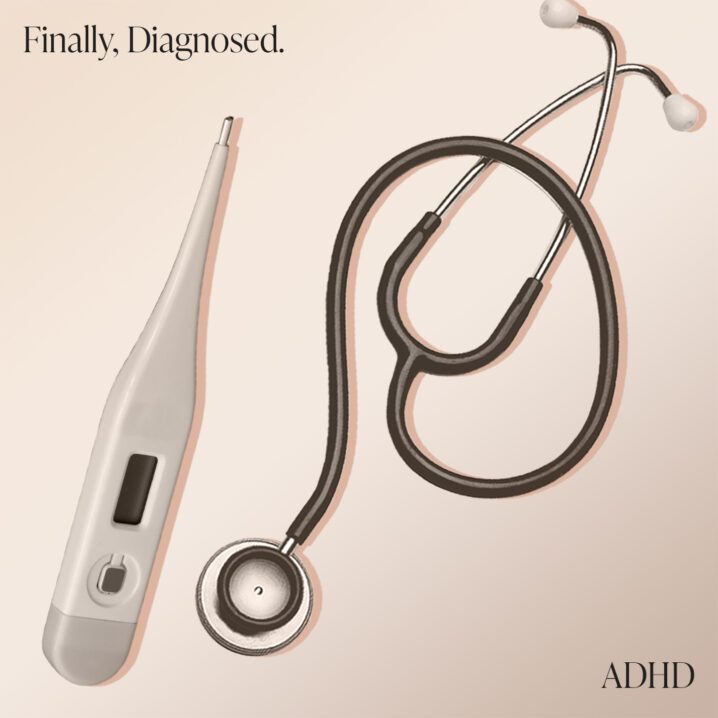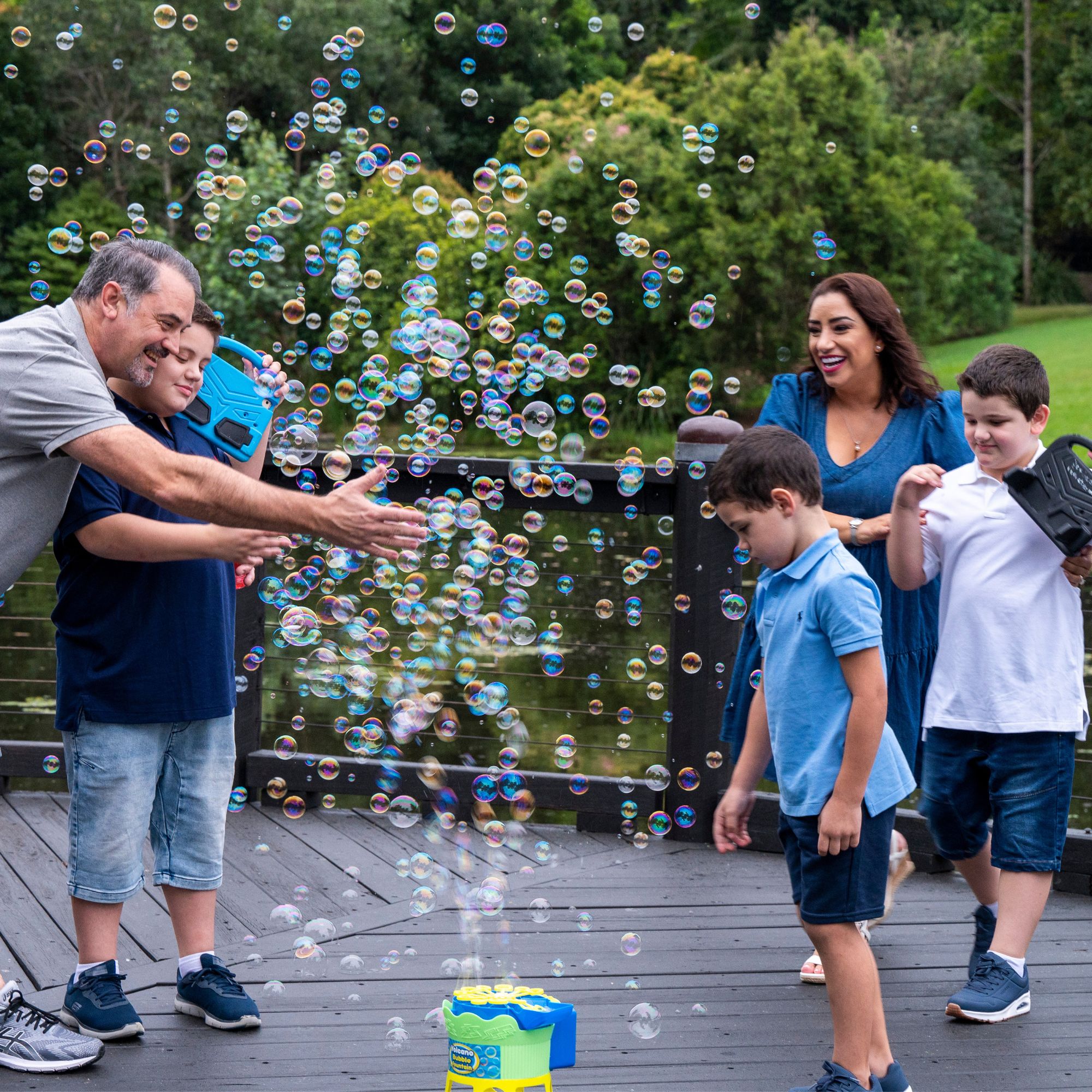
- POPSUGAR Australia
- Fitness
- “Being Diagnosed With ADHD as an Adult Made Me a Better Mum”
“Being Diagnosed With ADHD as an Adult Made Me a Better Mum”

Obé Fitness cofounder Ashley Mills says her son started to exhibit ADHD symptoms around the age of 5. “Other kids his age weren’t having tantrums in the same way he was,” Ashley tells POPSUGAR. “They were able to emotionally recover from things and he wasn’t able to.” Her son’s school had also told Ashley that he was having trouble reading and staying focused in class.
Ashley suspected it might be ADHD, but her son’s paediatrician said they shouldn’t get him tested for the disorder until age 7 – to “see where [he] is relative to other kids in some of the core skills that should have been developed by that time” – something that Ashley and her husband found to be reasonable. In the meantime, her son’s paediatrician encouraged both Ashley and her husband to get tested.
“We were concerned that it was a genetic thing,” Ashley says. In a study examining the ADHD occurrence in parents of children with ADHD, 41 percent of mothers and 51 percent of fathers were found to have the disorder as well. Ashley’s husband got tested first and his diagnosis was confirmed. Then, she went through the same diagnostic tests “and sure enough, I had ADHD,” Ashley says.
Being diagnosed with ADHD made Ashley look at her life through a completely different lens.
“[The diagnosis] answers so many questions, but there were also a lot of feelings that I wasn’t necessarily expecting to come from it,” she says. Looking back on her childhood, certain characteristics about herself began to make sense. “I was the kind of kid that could sit and colour for hours and hours and hours,” Ashley tells POPSUGAR. “I’d go deep on things and get hyper fixated. It was probably good for mum because I kept myself very busy. But in hindsight, that could have been a part of it.”
She also began to view her love for exercise and movement with a new context. “I don’t think I knew super consciously how important it was to my mental health,” Ashley says. But after being diagnosed with ADHD, she says she was able to better understand why she was “so drawn to fitness and these kinds of immersive experiences that would help to take you out of your head and into your body.”
In other ways, being diagnosed brought on certain complexities that Ashley never could have predicted. After learning about her new diagnosis, for instance, Ashley’s mum told her that years ago a guidance counsellor had told her that both Ashley and her brother likely had ADHD. But “this was in the early ’90s, when you didn’t put kids on medication,” Ashley says. “It was a very taboo thing.” And so her mother swept the diagnosis under the rug and never told her kids about it.
Decades later, Ashley says she was left wondering what a diagnosis could have done for her brother, who passed away in his teens. “He was the traditional picture of what ADHD in a boy looks like: moves a million miles a minute, always cuts up class, the life of the party, but schoolwork wasn’t his thing,” Ashley explains. By the time he was a teenager, her brother had gotten into drugs. “I imagine that was because he was trying deal with really big feelings that he didn’t know how to deal with,” she says. He died in a car accident when he was 17 and Ashley was 14.
Knowing how much being diagnosed as an adult had helped her, Ashley couldn’t help but wonder what her brother’s life might have looked like if her mum had followed up with their guidance counsellor all those years ago. It’s been an unexpected “grief process,” Ashley says, referring to coming to terms with both her own diagnosis and that of her brother’s. “[My mum and I have] had lots of productive conversations about it. And I think in the end, it was just a different time,” Ashley says.
But now she’s adamant about protecting her own son from the stigma.
Ashley’s son was eventually diagnosed with ADHD at age 7, and Ashley has been a fierce advocate when it comes to making sure he has all the necessary resources to succeed. “Now I’m just even more vigilant about it, to make sure that he gets the support that he needs.” Ashley tells POPSUGAR. That’s included moving out of New York City and into Westchester where her son is in a smaller classroom and a more personalised learning environment.
Having the condition herself has also helped Ashley parent with more empathy and understanding. She’ll tell her son, “You have a brain like Mummy, and here’s what that means.”
She’s also been able to teach gratitude practices and mindfulness tools from personal experience that help him to think before he reacts. “It makes me a better parent having gone through this,” Ashley says – and for that, she says she couldn’t be more grateful.
Each year in the US, an estimated 12 million adults who receive outpatient care are misdiagnosed, and oftentimes, those patients fall within a minority identity, including women, nonwhite Americans, and those within the LGBTQ+ community. That’s why we created Finally, Diagnosed: a monthly series dedicated to highlighting the stories of those who’ve been overlooked by their doctors and forced to take their health into their own hands in order to get the care they deserve.


